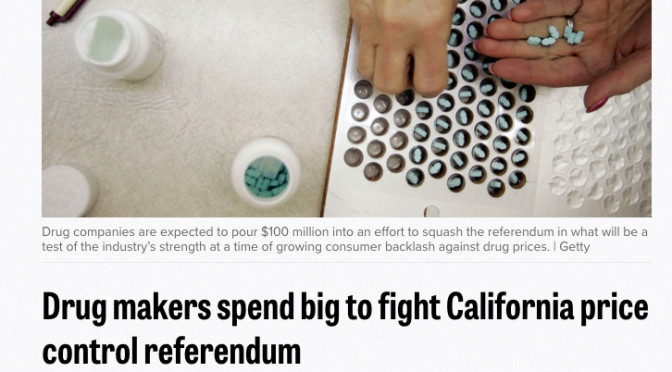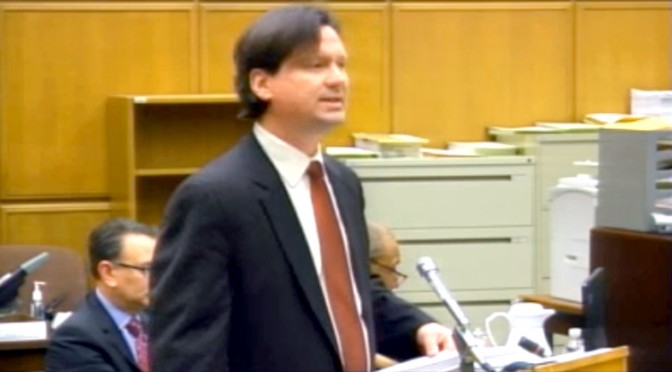Drug Companies To Pour $100M Into Battle Against California’s Price Control Ballot Initiative
The initiative, likened by one lobbyist to a “grenade being rolled into the conversation,” would require the state to pay no more for prescription drugs than the U.S. Department of Veterans Affairs, and the industry is gearing up to fight back. In other news, Novartis’ heart-failure drug is getting a warmer welcome in Europe than America, and the company is considering its options in selling its stake in Roche.
Donald Trump and Hillary Clinton give drug makers the jitters when they talk about Medicare negotiating the prices of prescription drugs. But the biggest near-term threat to the industry comes from a California ballot initiative that would test a version of that idea in the most populous state. That ballot initiative “is a grenade being rolled into the conversation, and it is being taken very seriously,” says a Republican drug lobbyist in Washington, D.C. (Cook and Karlin-Smith, 4/25)
The industry is expected to pour $100 million into an effort to squash the November ballot initiative.
Donald Trump and Hillary Clinton give drug makers the jitters when they talk about Medicare negotiating the prices of prescription drugs. But the biggest near-term threat to the industry comes from a California ballot initiative that would test a version of that idea in the most populous state.
That ballot initiative “is a grenade being rolled into the conversation, and it is being taken very seriously,” says a Republican drug lobbyist in Washington, D.C.
Drug companies are expected to pour $100 million into an effort to squash the referendum in what will be a test of the industry’s strength at a time of growing consumer backlash against drug prices. The initiative would require the state to pay no more for prescription drugs than the U.S. Department of Veterans Affairs — one of the few federal agencies allowed to negotiate drug prices.
From the industry’s perspective, California could set a dangerous precedent. Besides having an economy the size of many small countries, the liberal bastion is often a laboratory for new ideas that take root and then spread east. That’s even more likely given that the presidential front-runners are pushing the federal government to negotiate drug prices for Medicare.
“This is the crack in the door” on drug pricing, said Jamie Court, president of Consumer Watchdog, a California nonprofit devoted to consumer protection issues. “If any Democrat in America wants bulk purchasing in Medicare, it will start with bulk purchasing for the most liberal state government in America.”
Which is precisely the intention of the initiative’s sponsor, Michael Weinstein, CEO of the Los Angeles-based AIDS Healthcare Foundation. “If we win, we hope it will start a national prairie fire,” he said.
Weinstein pursued the ballot measure after years of in-your-face activism on AIDS and after watching the California state legislature fail to do anything about drug prices — a big concern to people with HIV/AIDS who may be taking costly drugs for the rest of their lives.
Read more: http://www.politico.com/story/2016/04/drug-makers-california-referendum-222334#ixzz471Q9mg4k
Follow us: @politico on Twitter | Politico on Facebook


